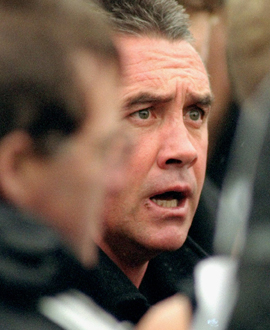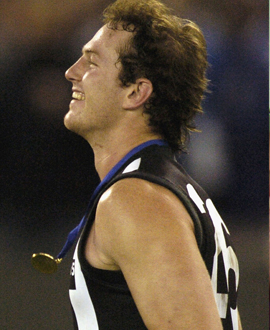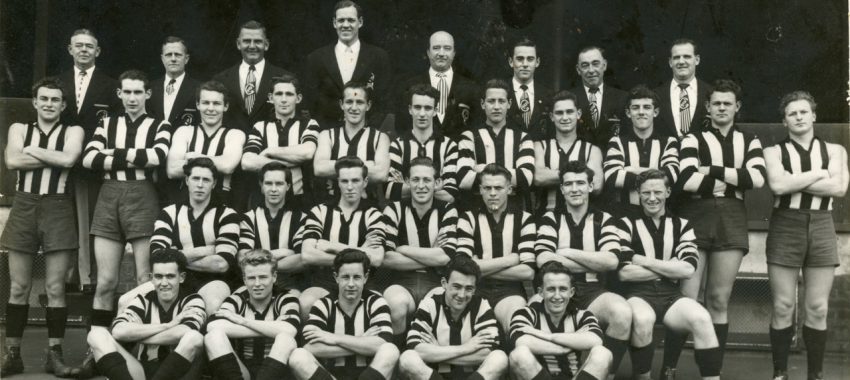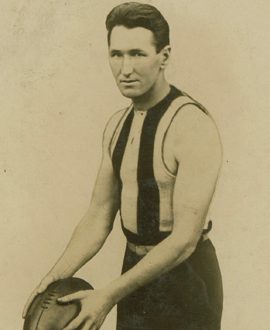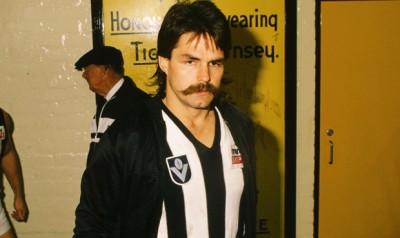Football is full of stories of players whose chances at a league career were snuffed out by random acts of misfortune.
But none have ever suffered a more tragic fate than a youngster named Henry Eslick, way back in 1895. Eslick, then 19, died while having a training run at Victoria Park with his new teammates just days before he was due to make his debut.
William Henry Eslick was born in 1875 in Sandhurst. He had two brothers, but only one survived to adulthood. The family moved to Bendigo, and then to Abbotsford, taking up residence in Lulie Street itself.
Henry was a talented sportsman who would play district/pennant cricket with North Melbourne. At 17 he was playing football with a local lower level club called Collingwood Excelsior and in 1892 was reported to have kicked four goals in one game. That same year he won a gold scarf pin for “best forward play”. He continued with Excelsior in 1893, but by 1894 he was on the radar of both Fitzroy Juniors and Collingwood Juniors, named in match day squads for each in successive weeks.
The Pies obviously kept an eye on him throughout 1894, when it is believed he played with Fitzroy Juniors. After Collingwood lost to South Melbourne on June 1, 1895, the entire VFA competition was scheduled to take part in a charity fundraising day the following Saturday. It included some novelty events and a one-hour game between fierce foes Collingwood and Fitzroy. The Pies would go on to name a full-strength side. (It is not completely clear from the newspaper reports whether Eslick was chosen for this game, or for the ‘real’ game against Carlton the following week, though it sounded like the latter.)
On the Tuesday before the charity game he took some time off from his job at the Yarra Falls Flour Mills and was having a kick on the Victoria Park oval with some other players when, according to The Age, he walked to the fence and sat down.
“A few minutes afterwards some boys near him called the attention of the players to him, and he was found to be in a dying state. Before he could be taken from the ground to his home … he was dead.”
The newspaper described him as “a strong, well-built young man” and said his death could not be explained. They also noted that he had been chosen for Collingwood’s next game. But an autopsy the next day revealed that he had suffered a ruptured hydatid cyst on his liver while trying to mark a ball. “The deceased was a splendid football player,” noted The Ovens and Murray Advertiser, “and it may be said of him that he literally finished his earthly career on the football field.” The Weekly Times said: “The loss of such a fine, strapping young fellow on the threshold of manhood must occasion keen and general regret.”
The Collingwood Mercury said he was “generally respected by those who had the pleasure of his acquaintance.” He has been in the habit of a playing with a junior team and on a recent occasion kicked four goals for his club. This attracted the attention of the senior team, and the result was that Eslick had been selected to play with the Collingwood footballers on Saturday next. Death has put an untimely end to this intention.”
Members of the football club attended the poor boy’s funeral, where they were joined by representatives of the other local organisations he’d been involved with, and there was considerable dismay at his passing. That dismay was worsened when it was learned that the many floral tributes on his grave were disturbed a week or so later by thieves wanting to steal the ribbons around the flowers.
That was the final insult to add to what was already a lamentably sad tale. Who knows what sort of career the young man might have had? He could have been a star, or he could have been a one-game wonder. Either way, to be denied the chance to fulfil his destiny and play even one game with Collingwood in such tragic circumstances seems beyond cruel.
- Michael Roberts


